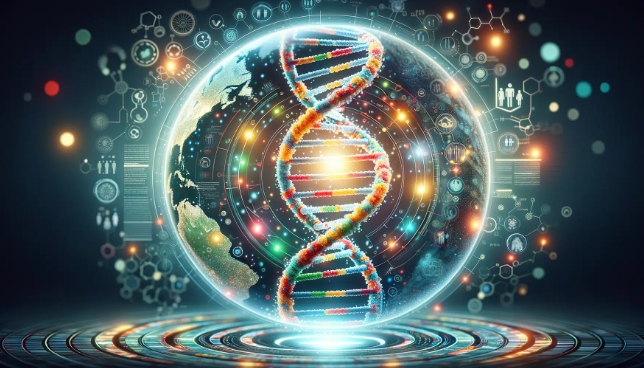Unlocking Your Genetic Secrets: How DNA Tests Expose Unexpected Lineage & Untold Family Histories
DNA Test Family Tree
How DNA Tests Reveal Surprising Ancestry
Delve into the fascinating world of DNA testing and discover how it unveils hidden ancestry and personal stories.
Understanding DNA Testing: A Gateway to Your Genetic Past
DNA testing has revolutionized the way we understand our ancestry and personal history. By analyzing specific markers in our genetic code, these tests can reveal insights into our ethnic background, potential health risks, and familial connections. The process begins with a simple cheek swab or saliva sample, which is then analyzed in a laboratory. The results can provide information about our genetic makeup, tracing our lineage back hundreds or even thousands of years. This technology has become increasingly popular due to its accessibility and the depth of information it offers. With DNA testing, individuals can uncover unknown relatives, explore their ethnic origins, and even connect with distant family members across the globe.
The Science Behind DNA Testing: How It Works
DNA testing relies on the analysis of genetic markers, which are specific sequences within our DNA that vary from one individual to another. These markers can indicate similarities and differences between individuals, allowing scientists to trace lineage and ancestry. The testing process involves extracting DNA from a sample, amplifying it using techniques like polymerase chain reaction (PCR), and then sequencing or comparing it against reference databases. The results are interpreted to provide a detailed report on an individual’s genetic background. This scientific approach ensures accuracy and reliability, making DNA testing a trusted method for exploring genetic heritage.
- Genetic markers are unique sequences that help identify relationships.
- PCR is a technique used to amplify DNA segments for analysis.
- Reference databases provide a benchmark for comparison.
Applications of DNA Testing: Beyond Ancestry
While ancestry exploration is a popular application, DNA testing has a wide range of uses. In the medical field, genetic testing can identify predispositions to certain health conditions, allowing for preventive measures and personalized treatment plans. In forensic science, DNA profiling is a crucial tool for solving crimes and identifying individuals. Additionally, DNA testing plays a role in wildlife conservation by helping to track and manage animal populations. The versatility of DNA testing extends beyond personal curiosity, contributing to advancements in science, medicine, and environmental conservation.
- Medical genetic testing helps in early detection of health risks.
- Forensic DNA profiling aids in criminal investigations.
- Wildlife conservation benefits from genetic tracking of species.
Ethical Considerations in DNA Testing
As DNA testing becomes more prevalent, ethical considerations have come to the forefront. Privacy concerns are a significant issue, as genetic information is sensitive and personal. There are questions about who owns the data and how it can be used. Additionally, the potential for genetic discrimination in areas like employment and insurance is a concern. It’s crucial for companies offering DNA testing to have clear policies on data protection and usage. Individuals should also be informed about the implications of sharing their genetic information. Balancing the benefits of DNA testing with ethical responsibilities is essential to ensure its positive impact on society.
Future of DNA Testing: Innovations and Possibilities
The future of DNA testing holds exciting possibilities with ongoing innovations in technology. Advances in sequencing techniques are making tests faster and more affordable. Researchers are exploring the potential of integrating DNA testing with artificial intelligence to provide even more precise insights into health and ancestry. There is also growing interest in using DNA testing for personalized nutrition and fitness plans, tailoring recommendations based on genetic predispositions. As technology evolves, DNA testing will continue to expand its applications, offering new ways to understand ourselves and the world around us.
Conclusion: Embracing the Journey of Discovery
DNA testing opens a window into our past, providing a deeper understanding of our origins and connections. While it offers valuable insights, it’s important to approach it with awareness of the ethical considerations involved. As technology advances, the potential for DNA testing to enrich our lives grows, promising new discoveries and opportunities. Embracing this journey of discovery can lead to a greater appreciation of our shared human heritage and the unique stories that define us.
